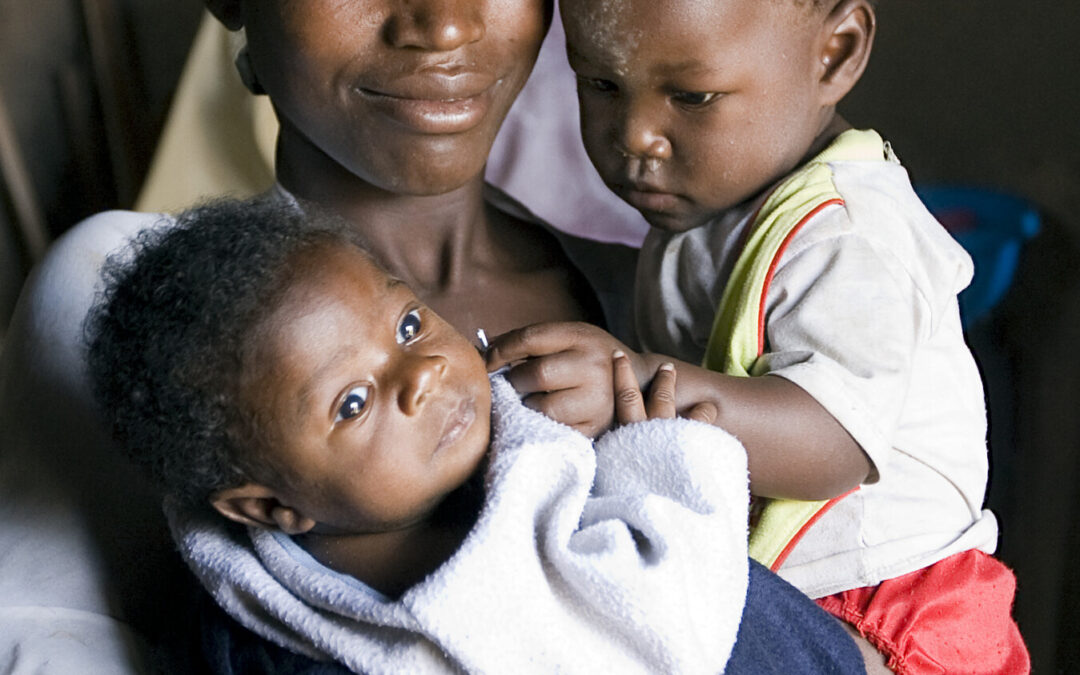
by wp-admin | Dec 9, 2021 | Exploring the Mental Fitness Formula
Imagine the shadow in this picture is my Adult and the very subtle pattern in the rivulet represents my three Child Brain Habits. It’s not easy to step out and take a picture of what happens in your brain. Let’s try to help you get a picture of these brain habits to help your Adult catch them at work.
To reach mental fitness your Adult needs all the help it can get to manage your own fight-or-flight reactions and then try to cope with the people and activities in your life. When it knows what to expect from your mind it can do this better. It’s pretty easy for your Adult to recognize a toxic belief and the Parent laying it on your Child, especially when you’ve learned what the most common beliefs are. Your Child’s plunge into fight-or-flight can be felt in your body and almost heard in its usual complaints of I can’t stand it and this is unbearable. Your Child Brain Habits are more difficult to identify and overcome.
These deeply imbedded ancient brain habits must have been helpful during times when our Adults had to recognize threats very quickly for survival. Speed must have been more important than accuracy then. I’ve named them Child Brain Habits because young children’s smaller, immature brains naturally use them to interpret what’s happening. They are: black-and-white thinking, personalization and over-generalization. When your Adult learns to catch them quickly, it can head off a whole lot of drama at its root.
These three brain habits share many of the same characteristics:
1) Since they’re evident in very young children and other mammals, they were probably wired-in for our protection early in human evolution.
2) They persist throughout your life, despite Adult efforts to retrain your mind.
3) Each one can have a broader impact on you than a toxic belief.
4) They each lead your Adult in a direction that sabotages it.
5) Since they’re constantly available, they appear in many situations without being noticed.
6) Each one influences you in more than one way, making it harder to identify and overcome it.
7) They set off many of your Toxic Beliefs, which can’t be permanently revised without also combatting the underlying brain habit.
8) Often more than one brain habit occurs at a time.
You can practice recognizing these habits in yourself, but it’s fascinating to see them play out among others. They’re pervasive in political discussion, religious theory, committee interactions and any time people come together. It’s helpful practice for your Adult to look for them when you’re not involved, on television or in movies or when just listening to others. These habits are deceptively simple and even those with the strongest Adult can fall under their influence.
It can be depressing to recognize how really fragile our human grip on reality is while you see people embrace these habits with passion and conviction. At a certain point, however, it’s refreshing to have your Wise Parent help you keep your perspective. To build this Parent’s wisdom, it’s fun to find wise quotes from others who have found ways to handle these primitive traits in your human nature. Sometimes you’ll even find yourself laughing at how absurd it can get, even for yourself.

by wp-admin | Dec 9, 2021 | Exploring the Mental Fitness Formula
Toxic belief #2, that you must surpass others in at least one area to be worthwhile, is also fueled by personalizing. Consider sibling rivalry or even the power struggles within a community. It seems to be wired-in for humans to feel threatened when someone in their own group exceeds their accomplishments. Even though they can usually accept that someone elsewhere in the world might exceed their expertise, they can really hate and envy someone nearby who does it. This suggests that in our distant past it was life-threatening if someone in our community performed better at something which we did well. Maybe in those times there were life-or-death consequences for the loser. In war and work situations today, losing our position can still be devastating if not deadly.
Toxic Belief #2 causes envy and jealousy and reduces people’s ability to cooperate in their endeavors. I doubt you can ever stop feeling a twinge of this at times because it’s probably wired-in. To revise it your Adult needs to step back from the situation and stop taking any of it personally. Instead, it needs to guide your Parent parts to recognize that for most people today, it’s not necessary to outperform others. If someone else gets the job or recognition you’d hoped and worked for, you have other groups you can join and/or many other ways you can contribute.
Toxic Belief #7 that it’s unbearable when you work hard for something and you don’t get it, often accompanies Belief #2 when you personalize what happens. For this my Wise Parent has adopted the phrase, Reality is least painful when you face it quickly. It’s a well-known fact that many situations reward very few of those who work hard to contribute, whether it’s business, sports, entertainment or the arts. It’s also true that often people who don’t seem to deserve the prize get it. We can choose not to take any of this personally; in reality, most often it’s our lot as human beings not to accomplish all we attempt, sooner or later, no matter what we do.
From the start it’s wise for your Adult to help balance Parent expectations and develop achievable goals. You should never “put all your eggs in one basket.” You always need Plans B, C and D. It’s usually a waste of energy and brings you no peace if you hate and treat badly those who make the decisions or those who win that coveted opportunity, even when they cheat. Instead ask yourself, “What do I actually need to have a satisfying life? Keep measuring your goals against that and remain flexible, as you develop the alternate plans that can lead to the best life for you and those you love. Your Adult can revise both Beliefs #2 and #7 this way: I’m a unique and valuable person. Only I can know and take charge of deciding what will allow me to express the best that I have to offer and enjoy my life.
Personalizing also drives human behavior in many other kinds of situations. People who have special emotional challenges, like paranoia, social anxiety, depression and unresolved trauma have to work harder to keep from engaging in this. Their Adult must be much more vigilant to recognize when personalizing starts and have ready some powerful reminder phrases to keep shutting it down. First they should consider that maybe the offensive behavior didn’t have much to do with them.
This gives their Adult emotional space to tackle their Parents’ intense resistance to any change in the protective system of toxic beliefs that they’ve created. This Parental rigidity occurs when people’s minds are either wired or damaged-by-experience to have an extremely vulnerable Child. When your Child doesn’t feel basically safe, it needs more reassurance and protection to keep out of fight-or-flight responses. In a vicious circle, the more it experiences fight-or-flight, the less safe it feels, and the more inappropriate “protective” toxic beliefs your Parents will press on you.
To reassure your Child, your Adult must prevent Parental triggering, but this gets more difficult the longer the pattern has gone on. Getting support from a counselor individually and then often in a group can help break these patterns and sustain your revised beliefs. Medication can be helpful and not lead to addiction, if it’s administered appropriately by a doctor who respects the value of psychotherapy and a client’s own wish to regain control. The social impact when whole groups join together to embrace personalization and the toxic beliefs it supports will be discussed in future posts.

by wp-admin | Dec 9, 2021 | Exploring the Mental Fitness Formula

Feliciana Netamba cares for her two children at their home in the Cacilhas village near Huambo, Angola, where the MENTOR Initiative is working to help control malaria. Photo by Mike DuBose, United Methodist News Service.
When your Parent and Child parts buy into what should be tentative conclusions, or guesses, they move away from the truth about a situation. Overgeneralizing words like always, never, all, everyone or no one, only and assume should signal your Adult into quick action. Here’s how overgeneralizing ignites fight-or-flight for a few beliefs: Belief #7 is in effect when you tell yourself that if you work long and hard, it will always lead to the success you wanted. Belief # 5 discourages you from trying when you think you can never overcome the disadvantages of your past. Beliefs # 2 and 3 can trigger intense jealousy if someone else outperforms you in an area where you assume you’ll always come out ahead. Belief # 8 may encourage you to quit looking for your best path because you think that happiness is only and always just what life gives you.
To reduce fight-or flight reactions to always and never overgeneralizing in your toxic beliefs, your Adult must offer Wise Parent phrases like: I’m just guessing about this, but this is what I think now; or from what I know about it, this may work. It’s often best to say, until I get more information, I can’t evaluate this. Your Wise Parent is developed as you revise toxic beliefs and gain wisdom from others. It acts like a bank from which your Adult can withdraw phrases to revise persistent toxic beliefs and quiet fight-or-flight responding.
The best example of humans coming together to manage overgeneralization may be found in the scientific method. It’s designed to prevent people from concluding that things are true based on just a few examples. Testimonials from individuals make the news, but they can’t offer reliable information about most people. Scientists publish articles where they detail how they followed the scientific method in their work. These allow anyone to judge whether their conclusions are close to being true. Here are some steps that the scientific method offers to help you avoid living in a false world:
- When a study is reported it must disclose who funded it. This allows the reader to consider how it might have been biased in favor of the funding group or groups.
- Scientists must define how they’ve selected the participants. Random sampling is the goal for initial selection and important at every step. If this isn’t done, the results can’t be generalized to groups containing a different type of person (gender, age, experience, level of health, ethnic or racial group, etc.) For years all research on breast cancer was done with men, because women’s hormone changes made study more difficult in them. Scientists who conducted these were overgeneralizing if they that the results of a treatment would work the same for women generally as for the men in their studies. Often this did occur.
- There must be a large enough group of people studied for any answers to be considered even partially true. Scientists describe the probability that their findings are true in percentages.
- When large, well-run studies by several respected groups around the world come up with the same results, you can have the most confidence that their findings can be generalized to people in general. After just one study, it’s common for other researchers to run similar studies and find different results. Even one factor that’s different, like reliance on participants from England instead of Kenya, can change the outcome. They’d be overgeneralizing if they claimed that their results would be true beyond England for some issues.
How do scientists guard against overgeneralizing? They document how they perform every step of their studies and encourage others to try to duplicate their work. Because it’s impossible to provide conditions like perfect random sampling, honest researchers will share the limits of how their work can be generalized. Those who do overgeneralize lose the respect and trust of other scientists and their funding. They hurt the progress of science because large research studies are expensive and require the committed efforts of many people, often over many years. In medicine and other areas of research this can be devastating.
Researchers who won’t follow the rules and lie about it may subscribe to Indulgent Parent Belief # 12: If you’re very clever, you can find shortcuts around the frustrating rules in our society. They don’t get away with it because other studies will prove their claims to be false. In medicine they waste precious time when new treatments are badly needed. If their work is overgeneralized, they may harm many people. An example of this is when doctors choose to overgeneralize by prescribing medicine that hasn’t been proven effective or safe for people outside the group that’s been studied.
How can your Adult sift through all the information you receive to identify what’s most likely to be true? Watch for how a scientist or doctor describes it. Do they use the words always or never? Do they refer to reliable sources for their information? Are they respected among other scientists in their field who know the quality of their work? Do they call their findings true or most likely true (which is more accurate) at a certain percentage? Is your doctor recommended by another respected doctor who knows her work? If not, you risk joining the false world of overgeneralization with all the risks it poses.




